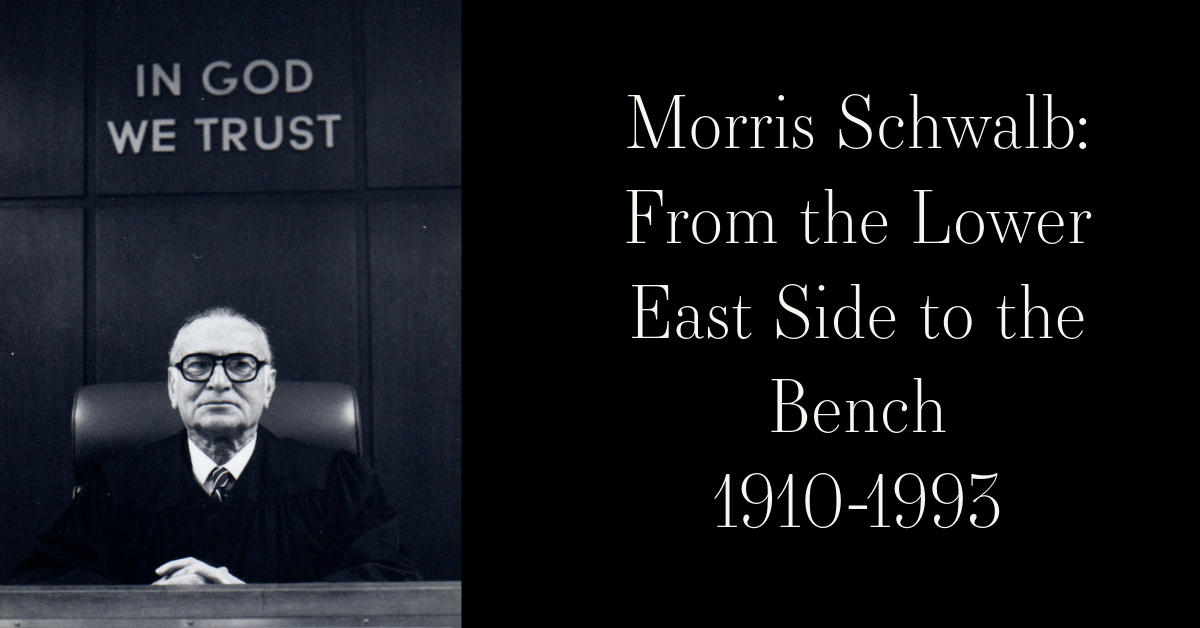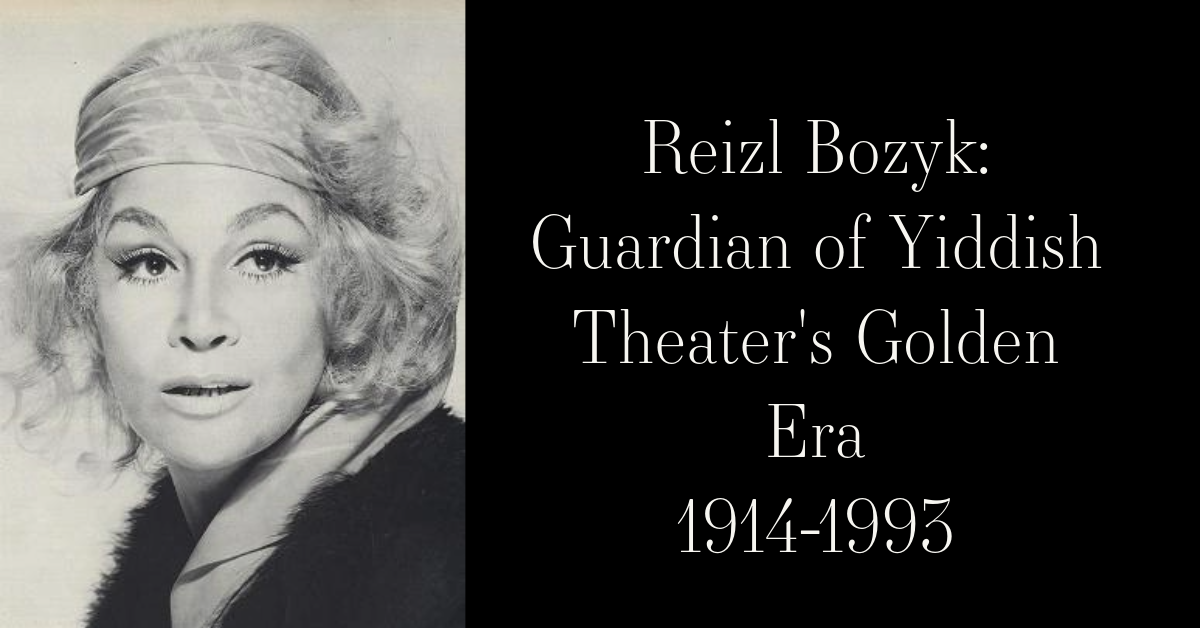Story Summary:
Gilford would become well known for his impressions, comedy routines and physical humor. These skills were no doubt developed while he was working as a Master of Ceremonies and doing Broadway acting. Even into his later career these skills proved useful as a comedic actor. Jack Gilford was known for his unique style of comedy, which was characterized by his distinctive voice, expressive face, and impeccable timing. His humor was often self-deprecating and centered on his own experiences as a Jewish-American, but he also had a talent for finding the humor in everyday situations and human folly. Jacks' roots in the entertainment industry were in Vaudeville, Yiddish theatre, and Burlesque performances.
~Blog Written by Julian Christy
Jack Gilford: Through the Years
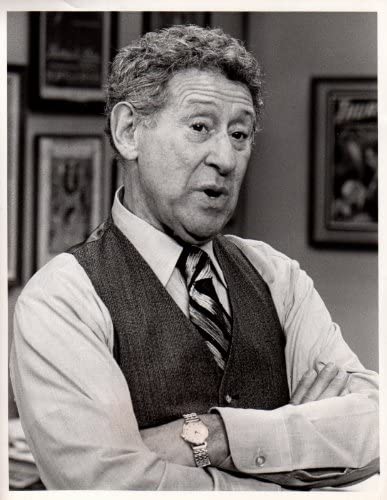
Jack Gilford (born Jacob Aaron Gellman) was born on July 25th, 1908, in the Lower East Side of Manhattan. Gilford grew up in Williamsburg, the son of Romanian-Jewish immigrants. Gilford’s mother, Sophie Gellman, was a nurse and Bootlegger and Gilford told people that his career had been financed by his mother’s illegal liquor business.[1] During these years it is alleged that Jack and his brother were delivery boys for his mother’s illegal operation, delivering gallons of liquor in their mother’s nurse’s bag.[2] Gilford says that his mother was always extremely supportive but that she didn’t have much spare time because of her work, he says that him and his brother would go to the movies about 6 times a week due to the absence of his mother.[3]
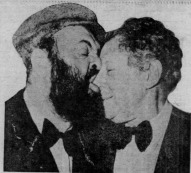
Jack (Right) and his good friend, Zero Mostel (Left)
His mother owned a restaurant and his father worked as a furrier. During the earliest years of his career his mother urged him to get involved in the entertainment industry, she told him to quit his job in a cosmetics store and go to amateur night auditions. His earliest foray into the entertainment business was in 1934 when he acted in Vaudeville shows and hosted nightclub events.[4] He began his career in show business as a comedian and vaudevillian, appearing in clubs and theaters across the country. By 1939 he would begin appearing in Broadway productions.[5] In the 1940s, he made his way to Broadway, where he became known for his comedic timing and physical humor.
Gilford would become well known for his impressions, comedy routines and physical humor. These skills were no doubt developed while he was working as a Master of Ceremonies and doing Broadway acting. Even into his later career these skills proved useful as a comedic actor. Jack Gilford was known for his unique style of comedy, which was characterized by his distinctive voice, expressive face, and impeccable timing. His humor was often self-deprecating and centered on his own experiences as a Jewish-American, but he also had a talent for finding the humor in everyday situations and human folly. Jacks’ roots in the entertainment industry were in Vaudeville, Yiddish theatre, and Burlesque performances.

Jack and Madeline Gilford and their family
Gilford met his wife Madeline at a political meeting in the 1940s while both were married to other people.[6] Jack didn’t start acting in movies until 1944 with his performance in “Hey Rookie”. Its hard to pinpoint what exactly was the given reason that Jacks name began being tossed around in anti-communist circles. But Jack was listed first in the Anti Communist Magazine, “Red Channels!” in 1950.[7] Originals of the manuscript are hard to track down but second hand sources like Ellen Schrecker’s The Age of McCarthyism, give us snippets of some of the claims laid out against supposed communists where even the mildest of leftism was construed to be communist influenced in nature. We know from this secondary source that Jack was mentioned in the magazine and about 3 years later would be called to court in regard to the matter.
Jacks early career was momentous but it was upended at what seemed to be its zenith in the 1950s when Gilford was mentioned by Jerome Robbins in his testimony before the infamous House Unamerican Committee (HUAC). During the 1940s and 1950s, the House Un-American Activities Committee (HUAC) launched a series of investigations into alleged Communist activities in the United States. These investigations targeted individuals in various fields, including entertainment, politics, and academia. Jack Gilford was one of the most prominent actors to be caught up in this witch hunt, a veteran of stage and screen who was blacklisted for his political beliefs. Gilford was subpoenaed in 1956.[8] He denied being a communist on the stand.
“One day the phone just stopped ringing and I didn’t do TV or Films for 10 years.” Gilford said. [9]
The blacklisting was especially hard on actors whose image was a massive part of not only their casting in big pictures, but also in their reception. To be labeled a communist during this time was essentially a career death-sentence.
|
Jack Gilford as Simon the Likeable in “Get Smart”
|
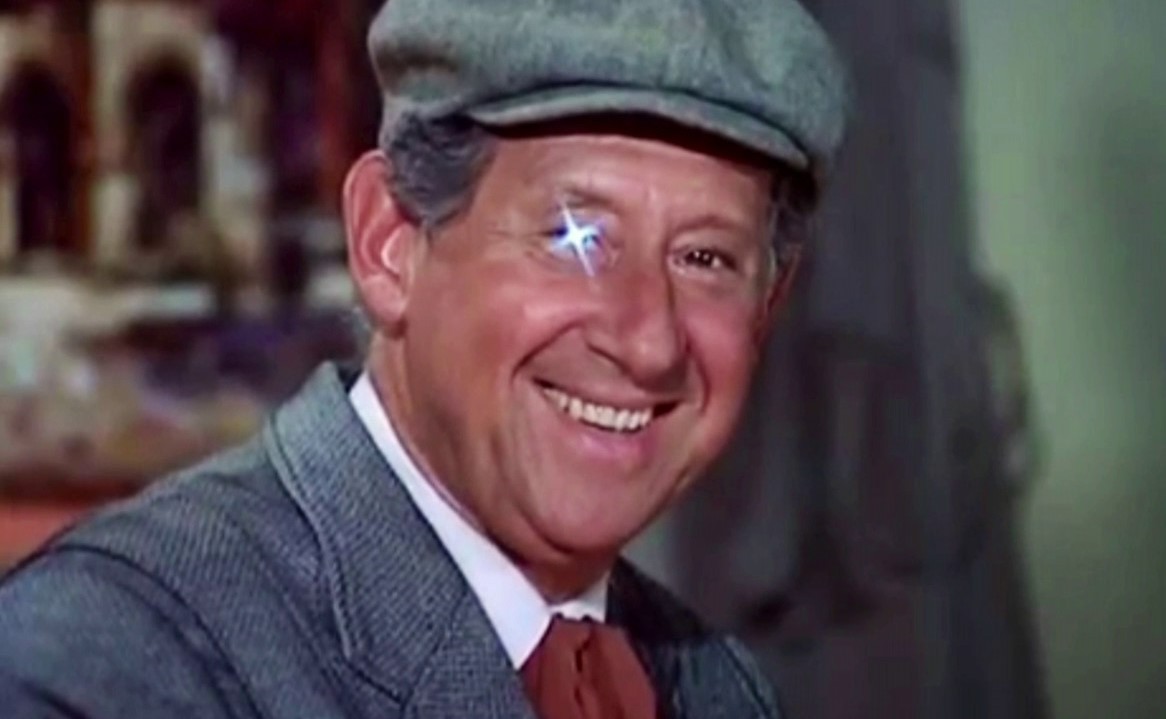
This accusation caused a noticeable shift in his career’s trajectory for the next decade, both jack and his wife had an immensely hard time finding work. He was unable to get hired by major studios or production companies, and was forced to take small, low-paying jobs to make ends meet. Gilford's persecution by the HUAC took a toll on his personal life as well. He was forced to move his family to Europe for a time, to escape the blacklist and find work. He also suffered from health problems later in life, including a heart attack and stroke, which he attributed to the stress of being blacklisted. Despite this, he continued to work in theater and television, and eventually began to find success again in the 1960s and 1970s. He appeared in several successful films, including "Catch-22", “Get Smart” and "Harry and Tonto," and became
a beloved character actor known for his unique, quirky performances. In the 1980s, Gilford became a familiar face to a new generation of audiences thanks to his memorable performances in several hit films, including "Cocoon" and "Arthur 2." He was also a prolific voice actor, lending his distinctive voice to projects like Sesame Street. Gilford also had a legendary performance on the hit sit-com “The Golden Girls”. These later performances were instrumental in broadcasting his face to the next generation.
Jack Gilford would die in his Greenwich home on June 4th, 1990, of Stomach Cancer. Despite his success and popularity, Gilford's health had been in decline for several years prior to his death. Gilford's death was mourned by fans and colleagues alike, who remembered him as a beloved performer and a kind-hearted individual. He left behind a legacy of memorable performances and a lasting impact on the world of comedy and entertainment. Jack and Madeline’s son, Joe Gilford would go on to write theatre production of his Families Story including the hardships of the black-listing in “The Finks”, a Play which sought to expose the harsh realities of the blacklisting for actors and their families and also to offer an anecdotal look at the day to day of his family’s life.
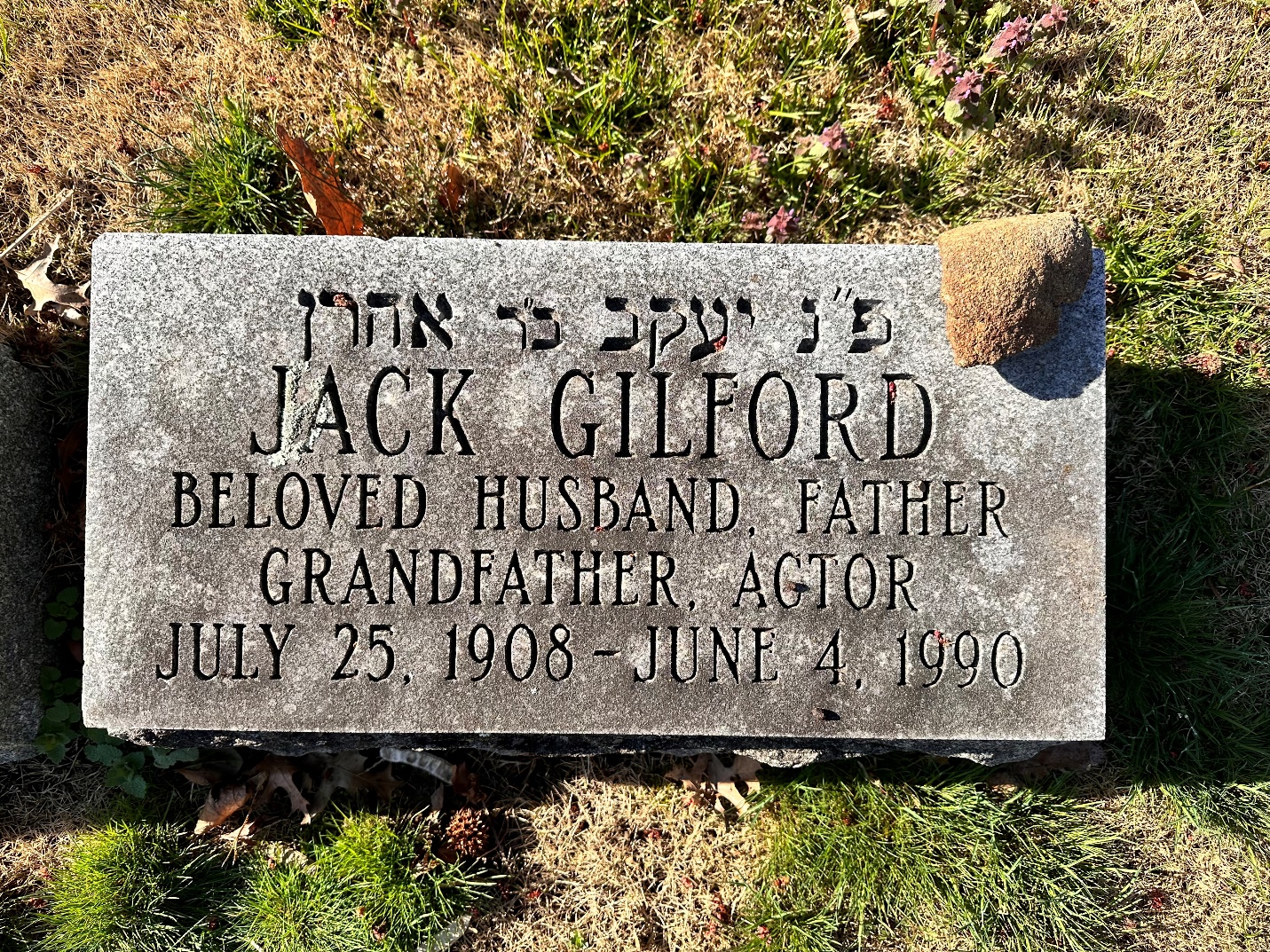
[1] The Reporter Dispatch (White Plains, New York) · 2 Jul 1978, Sun · Page 25
[2] The Reporter Dispatch (White Plains, New York) · 2 Jul 1978, Sun · Page 25
[3] The Brooklyn Daily Eagle (Brooklyn, New York) · 24 Oct 1951, Wed · Page 10
[4] The Buffalo News, Buffalo, New York · 5 Jun 1990, Tue · Page 2
[5] The Buffalo News, Buffalo, New York · 5 Jun 1990, Tue · Page 2
[6] The Jack and Madeline Gilford papers
[7] The Age of McCarthyism. Schrecker, Ellen
[8] The Buffalo News (Buffalo, New York) · 5 Jun 1990, Tue · Page 2
[9] The Buffalo News (Buffalo, New York) · 5 Jun 1990, Tue · Page 2










